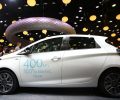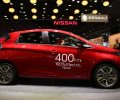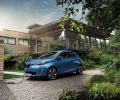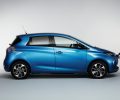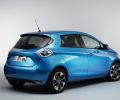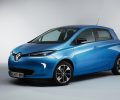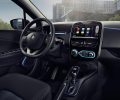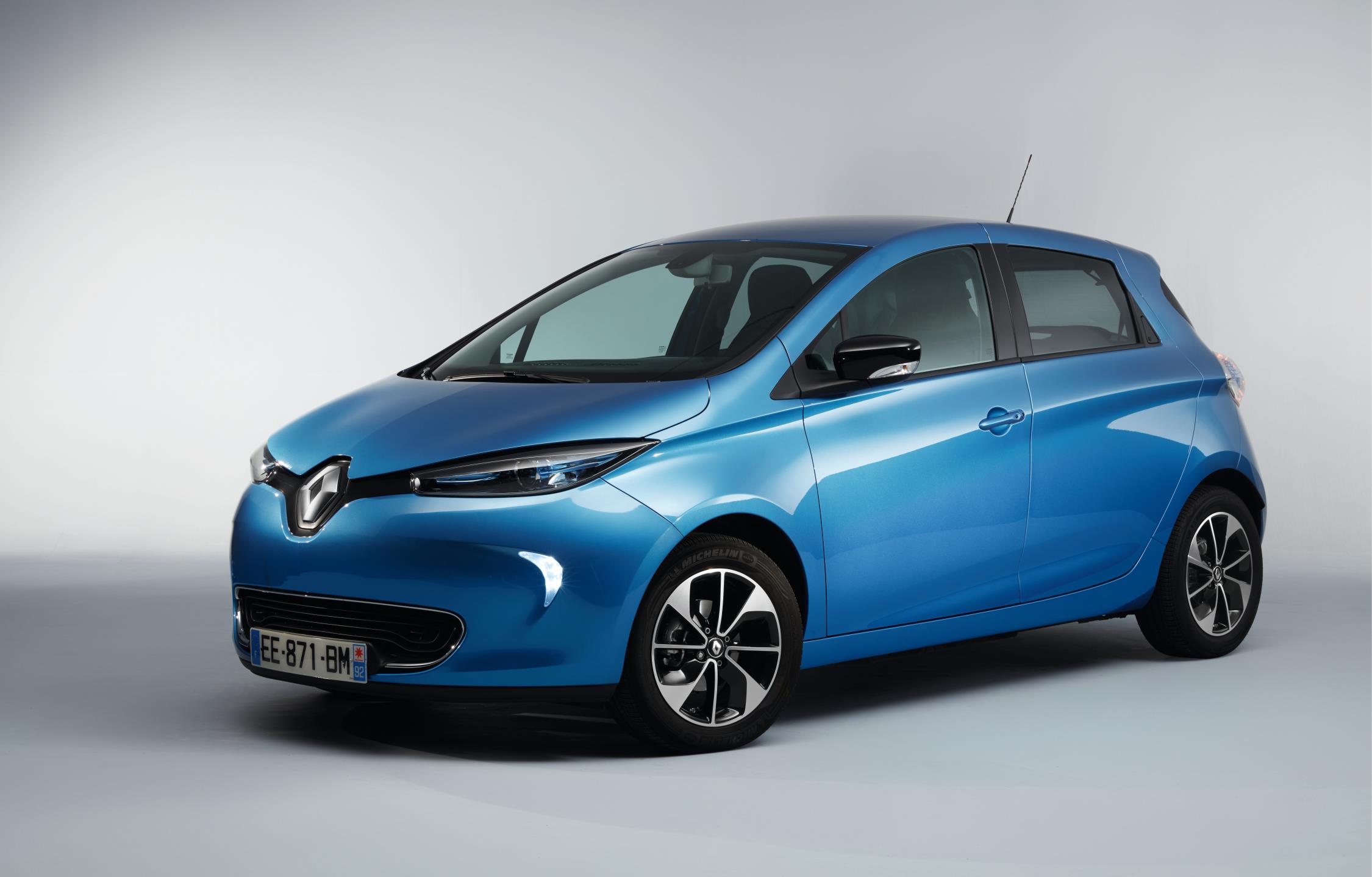
- Renault has introduced a new battery for ZOE that provides up to 250 miles of driving on a single charge (NEDC)
- ZOE has the longest range of any mainstream electric vehicle on sale today
- The new ZOEs fitted with the new Z.E. 40 battery are made at Renault’s Flins plant in France
- ZOE owners can benefit from a range of new connected services and equipment upgrades
- New Z.E. 40 battery will go on sale in the UK in November
- Renault ZOE is Europe’s best selling electric vehicle
A Renault ZOE with the longest range of any mainstream electric vehicle – 250 miles (400km) – was unveiled today by Carlos Ghosn, Groupe Renault Chairman and CEO during the Mondial De L’Automobile Paris 2016. It will go on sale in the UK in November.
DOUBLE THE RANGE FOR EVEN LONGER JOURNEYS
As the pioneer of all-electric mobility and Europe’s number one seller of electric vehicles, Renault has stepped up its innovation programme and the deployment of its Z.E. strategy (Zero Emissions (1)).
Fitted with the new Z.E. 40 battery, the Renault ZOE now delivers a record NEDC driving range of 250 miles (400km), which is twice the distance delivered by the model at the time of its original launch.
In real-world driving, Renault estimates the new Z.E. 40 battery has a range of 186 miles (300km) in urban or suburban areas.
The range offered today by the new ZOE is the longest of any mainstream all-electric vehicle and motorists can take advantage of this step forward now. The ZOE is the best-selling electric vehicle in Europe and provides a real alternative to internal combustion- engine cars, since average daily commuting distances are well within the ZOE’s capabilities.
The new battery removes the final psychological barrier that stands in the way of buying an electric car, so-call ‘range anxiety’, since ZOE users can now travel further and enjoy a wider variety of driving situations without worry about charging.
(1) Zero emissions during road use: no CO2 emissions or emissions of other regulated airborne pollutants during road use in compliance with the NEDC cycle (not including wear parts).
The ZOE’s driving range in miles (and kilometres) with a complete charge(2) :
| NEDC cycle certification (1) | Real-world traffic conditions – Urban and suburban use, temperate climate | |
| The New Z.E. 40 battery (41kWh) | 250 miles (400km) | 186 miles (300km) |
| The existing 22kWh battery
Will remain on sale alongside the new battery |
149 miles (240km) | 106 miles (170km) |
The time required to charge the Z.E. 40 battery is similar to that necessary for the standard battery, so ‘topping up’ doesn’t take long at all. For example, just 30 minutes is required on average to charge the battery for an extra 50 miles (80km) of driving range when plugged into one of the many public charging points in operation in Europe(3). The ZOE continues to be available with the Quick Charge function to take full advantage of the maximum capacity of fast charging points located predominantly along motorway corridors.
AN INNOVATION THAT DOUBLES BATTERY CAPACITY WITH NO INCREASE IN SIZE
The ZOE’s new Z.E. 40 battery boasts 41kWh of useful energy, equivalent to almost double the storage capacity of the ZOE’s standard battery (22kWh of useful energy).
Developed in close partnership with LG Chem, the battery uses high-energy density lithium-ion technology.
Renault and LG engineers have succeeded in increasing storage capacity without making the battery any bigger or a lot heavier. It was optimised by working on the chemistry of the cells in order to increase their energy density, rather than stacking additional battery modules, a commonly used technique.
This major new technology has been developed while ensuring the battery’s reliability and safety.
The battery’s large storage capacity ensures longer range for the ZOE thanks to the meticulous work that went into integrating the battery in the vehicle. The electronic management system of the battery optimises the ZOE’s energy use on the move, while the new air circulation system maintains the temperature of the ZOE’s battery at a constant level, making the car economical to run in very hot or very cold weather.
To complement the new battery, the ZOE motor has undergone a naming restructure, moving from being related to range (in kilometres) to power output (in horsepower) to match internal combustions engine vehicles, as follows:
| ZOE motor (2012-2016) | ZOE motor (2016- ) | Max. charge speed | Power |
| R240 | R90 | 22kWh (Rapid) | 90hp |
| Q210 | Q90 | 43kWh (Quick) | 90hp |
THE ZOE: DESIGNED AND MADE ENTIRELY BY RENAULT
Just as it conceives and manufactures the majority of its powertrains, Renault designed and makes the ZOE, thanks not only to the expertise it has acquired as a pioneer in the world of electric-vehicles mobility and as Europe’s number one electric-vehicle brand, but also to its technical and sporting partnership roles in the FIA Formula E Championship. Groupe Renault’s know-how is chiefly rooted in France where its high added-value vehicles and components are primarily designed and produced.
Like the 22kWh battery, the new Z.E. 40 battery is assembled at Renault’s Flins plant, near Paris. The same factory is responsible for the production of the Renault ZOE, alongside the Renault Clio. The ZOE was designed and engineered at the Renault Technocentre in Guyancourt, also near Paris.
The R90 motor is made at Renault’s Cléon factory in Normandy, a flagship facility in the field of engine and transmission production for the group. Launched in the spring of 2015, and originally known as the R240, this motor was entirely developed by Renault and led to the filing of 95 patents.
The housing that permits the battery’s integration in the ZOE, as well as the model’s front and rear suspension systems, were all conceived by Groupe Renault’s Chassis and Electric Vehicle Engineering Division and are manufactured at Renault’s Le Mans plant.
Z.E. TRIP AND Z.E. PASS: TWO NEW SERVICES TO SIMPLIFY CHARGING AT PUBLIC CHARGING STATIONS ACROSS EUROPE
About 80,000 public charging stations are in operation across Europe. To provide ZOE owners with easy access to them, Renault has released two free services: Z.E. Trip helps customers to locate charging points, while Z.E. Pass gives access to a high number of charging stations.
Z.E. Trip: Using the R-LINK navigation system to locate all charging points
Z.E. Trip makes long-distance driving a breeze in the ZOE by allowing drivers to locate all public charging points in some of the main European countries(4). Z.E. Trip can be accessed directly via the Renault R-LINK navigation system using the steering wheel-mounted controls or via the internet to prepare trips in advance. The service indicates the real-time availability of each charging point, as well as its type and whether it is compatible with the car. The driver can select a charging point based on its charging capacity so the speeds suit their requirements.
Z.E. Trip began its rollout to ZOE customers in certain European markets in September and is anticipated to be rolled out in the UK in the coming months.
Z.E. Pass: a single access and payment solution for most public charging points
The Z.E. Pass app makes charging the ZOE easier at most public charging points in Europe even though they are owned by various operators. The driver can pay using the smartphone app or with an RFID badge. They can also locate available charging stations and compare prices at different stations nearby using their smartphone or tablet without having to be a registered member of each network.
Developed in association with Bosch, the service was released in Germany in September 2016 and will be rolled out over the next few months in France, UK, Belgium, Austria, Switzerland, Netherlands, Norway and Sweden.
Z.E. SMARTPHONE APP ENHANCES TO INCLUDE DOOR-TO-DOOR NAVIGATION
New features will be added to the Z.E. app that is freely available to all Renault Z.E. customers, in the first half of 2017 to make journeys in the ZOE even easier, including door-to-door navigation.
Thanks to this feature, the user can enter his or her complete trip using their smartphone app and then forward it to the ZOE’s navigation system (Renault R-LINK). Once in the car, the driver can access their pre- programmed itinerary automatically.
After parking, the app takes over from the ZOE’s navigation system to indicate the final part of the journey on foot. The driver can also use the app to help find where they parked their ZOE or to look up their trip history and any other information in their trip computer.
Remote battery charging management
The Z.E. smartphone app keeps ZOE drivers connected to their car, even when they are not driving, in order to optimise battery charging.
ZOE owners can remotely:
- Check information, such as the car’s charge level, the estimated remaining range, the time remaining until the vehicle is fully charged, etc. It also receives messages when charging begins and is completed.
- Operate some of their car’s functions, including the cabin’s pre-conditioning system (cabin temperature) and activating the battery charging process, as well as taking advantage of off-peak electricity rates and different CO2 footprints depending on type of electricity generation (i.e. renewable energy sources may be more widely used by energy companies during off-peak periods)
(1) Zero emissions during road use: no CO2 emissions or emissions of other regulated airborne pollutants during road use in compliance with the NEDC cycle (not including wear parts).
(2) ZOE equipped with the R75/90 motor and 15- or 16-inch wheels PZE – the R75 motor is available in certain European markets
(3) Charging speeds may vary slightly depending on air temperature, the battery’s initial charge level and the power effectively delivered by the charging station
(4) France, Germany, Benelux, Denmark, Austria and Switzerland by end-2016.
(5) Available for all equipment levels, except Signature Nav versions.

